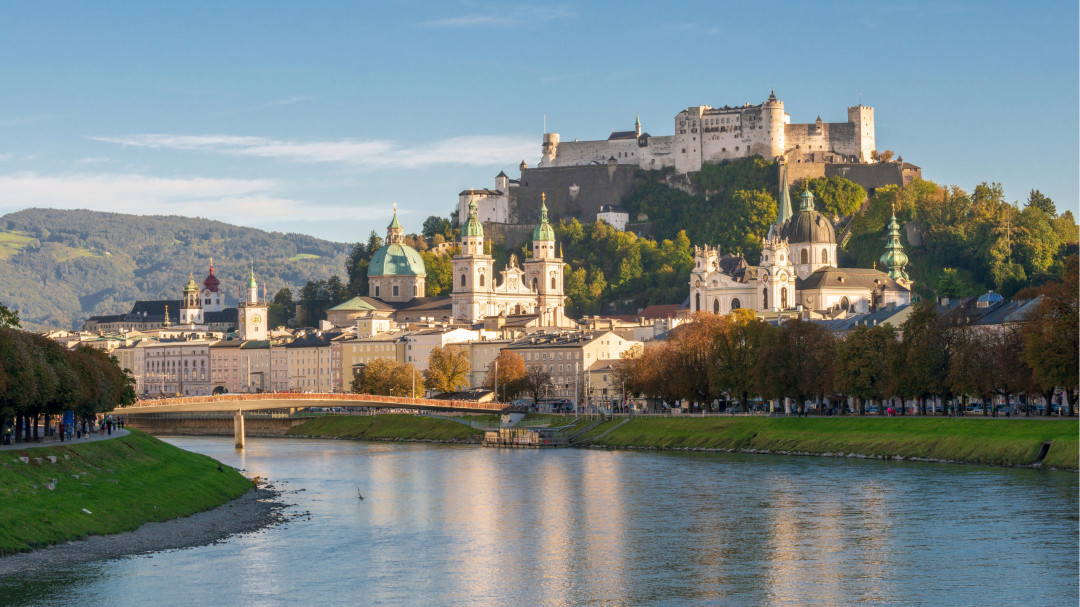
A headline that is also the motto of the Great Foundry Technology Conference. And it sums up what it will be all about in Salzburg in April. Namely, how casting technology and the industry must continue to develop in order to survive in a future that is climate-neutral and places ever-increasing demands on the highly sought-after young skilled workforce, which is shrinking purely due to demographic reasons.
Over 800 participants met at the Kongresshaus in Salzburg in 2018 for the Great Foundry Technology Conference. A lot has happened since then. The transformation towards a climate-neutral future is gathering pace and poses major challenges, and not just for the foundry industry. Corona, the Ukraine war, raw material and energy crises - exchange is more necessary than ever to find solutions and concepts for the future of the industry. The Federal Association of the German Foundry Industry is aware of this and, together with Austrian, Swiss and German foundry associations, is once again inviting participants to the next Great Foundry Technology Conference at Congress Salzburg in April 2024. The line-up of presentations therefore deliberately focused on the industry's megatrends.
Transformation
A word that is on everyone's lips. However, it is also a word that should be understood ambiguously in this context. We are living in times of social, economic and political transformation, at the end of which climate neutrality is to be achieved. This goal cannot be achieved without cast products, and we need to develop technical solutions in castings that are innovative and future-oriented in order to achieve this goal. However, in order to survive economically as an industry, the foundry industry itself must also transform itself. This presents each individual company, as well as research and science, with the task of reshaping the company and the industry with the pragmatic inventiveness that is proverbial for foundrymen. Of course, this affects traditional areas such as processes in iron and steel casting and non-ferrous metal casting, as well as production technology, material and process development. But it also applies to general solutions in terms of energy efficiency, environmental technology and digitalization that are not foundry-specific and need to be tailored to the industry. Best practices and innovative processes will be presented in Salzburg to show how the industry can close material cycles and where companies have already found solutions for greater sustainability.
Young talent
The soft human factor is not only affecting the foundry industry due to demographic trends. In fact, others, such as the service sector, are significantly more affected by the lack of young talent. Nonetheless, it also has a massive impact on foundries, all the more so as they often need specialized skilled workers who know their company and identify with it. Once the path to casting has been found, the passion for the industry is often quickly ignited. It is then important to further qualify and retain skilled workers. Personal exchanges and examples of best practice can be the initial spark for successful personnel development in your own company, as this is where inventiveness and initiative count.
Digitalization
Digitalization supports transformation. After all, it is possible to identify where CO₂ reduction potential and greater sustainability can be realized - provided you have the data to do so. Political requirements such as the Supply Chain Duty of Care Act or the Best Available Techniques can also be managed with the help of data, not to mention greater productivity, circular economy and recycling. And it also helps with the shortage of skilled workers. Digitalization and automation therefore permeate many areas and are virtually always on the agenda.
Practice and research
This also applies to foundry technology, which is the basis for any further development in the industry. In keeping with its name, the Great Foundry Technology Conference in Salzburg will therefore, as usual, offer presentations from the field and scientific lectures by young academics from research institutions. The presentations will cover iron and steel casting, non-ferrous metal casting and die casting, mold and core production and other classic areas.
The BDG is responsible for the organization and preparation of the lecture event. The conference provides participants with an important platform for personal exchange and offers them the inspiration they need to keep the industry fit for the future.

